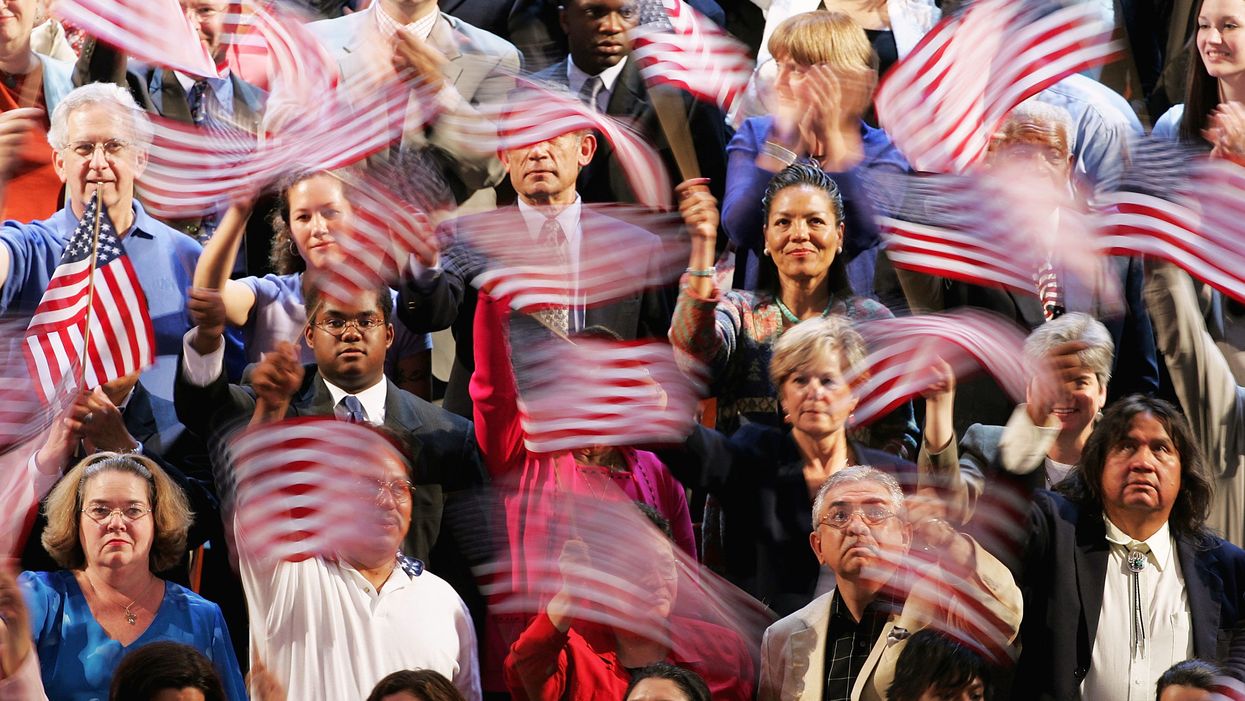Pritchard is the director of strategic communications for Essential Partners, which fosters constructive dialogue where differences are driven by values, views and identities.
"Unless democratic habits of thought and action are part of the fiber of a people," the American philosopher John Dewey wrote on the eve of World War II, "political democracy is insecure. It can not stand in isolation. It must be buttressed by the presence of democratic methods in all social relationships."
Today, many of our social relationships have been stripped of those methods. Democratic habits are imperiled, if not lost. And many advocates, pundits and politicians point to "identity politics" as the cause.
Identity politics, the criticism goes, have corrupted our public discourse, our politics and our civic life. We read that identity is divisive, rancorous and dangerous. You can find this sentiment in op-eds, newspaper columns, Twitter threads and stump speeches. There's too much identity, the thinking goes, and not enough open debate.
I disagree. We don't have too much identity in our political lives. We have too little.
For a democracy to thrive, Dewey argued, it has to consist of more than elections and rights. Dewey believed that democracy is a way of life. It's a way of living with one another, of being able to agree and disagree, of embracing our differences and individual histories.
Diverse, intersecting, often conflicting identities inform the values and views of every person and no two are exactly the same. That diversity is a resource. It expands range of perspectives and insights we can bring to bear on political and social challenges.
Making space for different identities in a political context stretches the limits of what is possible while allowing us to define and redefine our shared values.
Despite the many efforts to create that pluralist space, we still have an identity problem in our politics. Over the last three decades, all of our manifold identities — gender, ethnicity, family, religion, ideology — have been consumed by two over-simplified affinities, the only identities that seem to matter any more in our civic lives: red and blue.
The polarized partisan dynamic has come to shape every part of our lives, from housing choices to educational aspirations. There are red TV shows and blue TV shows. Red beer brands and blue beer brands. Red media and blue media. Red campuses and blue campuses. Red fast food and blue fast food.
Partisan identity has incorporated every fault line of American politics — with little ideological consistency — while refashioning views about wholly local problems, formerly transpartisan issues and institutional norms.
The poverty of public discourse stems from the domination of these two highly polarized identities, and the high level of polarization today stems from the flattening of every public discussion beneath this electoral opposition.
That cycle of polarization has become even more clear since I joined Essential Partners. Intentional communication methods clear away the baggage of polarized partisan identities, making space for nuances and idiosyncrasies.
For the people who work with us, it is often a revelation. They're shocked to find how much they share in common with people on the other side. They actually like each other, as one pro-choice advocate said of a group of pro-life leaders. They're able to build relationships across partisan issues like the role of guns and immigration.
We know from polling and political science research that Americans are not especially ideological. People cannot be understood solely through the stereotypes of red and blue. Each individual is better, more imaginative, more resourceful than that.
Our neighbors, coworkers and family members have multifaceted views informed by their experiences and identities — even if they face narrow electoral options.
Red-blue dialogue is a worthy pursuit, but it's not enough to merely engage "the other side." If you work exclusively within the framework of partisan polarization, you only reinforce those identities.
We all need to actively engage people who don't feel connected to either major party — the majority of Americans. We should work to surface the many variations within partisan groups and work to make space for other conflicting, or nuanced, identities.
I know firsthand that a polarized mindset can be a hard habit to break. It takes practice to see that a person's beliefs are the product of distinct experiences and values, rather than a set of pre-packaged opinions from partisan shelves.
The greatest value in practicing to break that mindset, as Dewey knew, is the practice itself: to reconstruct a democracy of individual relationships, open conversations and nuanced views.
If we can break the trap of partisan polarization, we will discover a richer, more functional, more democratic civic life. We will have more responsive leadership at every level of government. We will generate new ideas and empower civil institutions.
Embracing our manifold identities does not shut down reasoned debate about issues. As Dewey knew, those differences are the precondition for a democracy. Those differences are as important to name and discuss as carbon taxes or free speech.
To sustain this democracy, we must work to make space for the complex and contradictory identities within us and within each other. It must become the fabric of our civil and civic lives, a democratic method that makes all the rest of democracy possible.



















